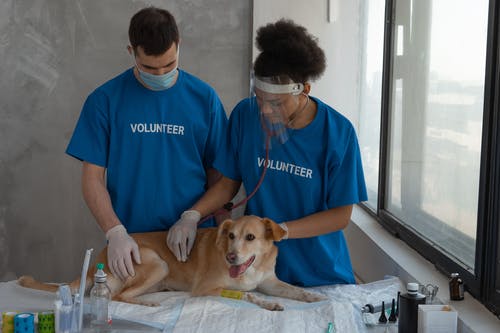Routine wellness exams play a crucial role when it comes to ensuring our beloved pets’ health and well-being. These exams help prevent and detect potential health issues and play a vital role in determining the need for veterinary surgery. In this article, we’ll explore the significance of routine wellness exams in the context of veterinary surgery.
Understanding the Purpose of Routine Wellness Exams
Routine wellness exams are regular check-ups conducted by veterinarians to assess your pet’s overall health and identify any underlying problems. These exams typically include a thorough physical examination, vaccinations, parasite screenings, and discussions about your pet’s lifestyle and behavior.
But how do these exams relate to veterinary surgery? Let’s find out. For more information on the importance of vaccinations and preventive measures, you can visit websites like www.belmarinanimalhospital.com/site/veterinary-services-novato/cat-dog-vaccinations-parasite-prevention. These resources can provide further insights into the role of routine wellness exams in safeguarding your pet’s well-being and preventing potential health issues.
Early Detection of Health Issues
Routine wellness exams allow veterinarians to detect health issues before they escalate and require surgical intervention. By identifying signs of illness or underlying conditions during these exams, veterinarians can promptly address the problem.
Early detection increases the chances of successful treatment, minimizes the potential risks and complications associated with surgery, and helps maintain your pet’s overall well-being and quality of life.
Pre-Surgical Evaluations
In cases where surgery is necessary, routine wellness exams are essential to evaluate your pet’s overall health and determine its fitness for the procedure. These pre-surgical evaluations often involve blood tests, radiographs, and other diagnostic procedures to assess vital organ function and identify potential risks.
By conducting these evaluations, veterinarians can minimize the chances of complications during and after surgery. To understand more about veterinary surgery and the relevance of pre-surgical exams in ensuring the health and good outcome of your pet’s surgical operation, you may check out websites like www.belmarinanimalhospital.com/site/veterinary-surgery-novato.
Tailoring Anesthesia and Surgical Plans
Every pet is unique, and their health requirements may vary. Routine wellness exams allow veterinarians to gather essential information about your pet’s medical history, allergies, and previous surgeries. This information helps them tailor the anesthesia protocol and surgical plans to ensure the safest and most effective procedure for your pet.
Long-Term Health Monitoring
Routine wellness exams also contribute to the long-term monitoring of your pet’s health. Following surgical procedures, these exams enable veterinarians to track the healing process, identify any postoperative complications, and make necessary adjustments to the treatment plan if required.
This ongoing monitoring ensures the well-being and successful recovery of your pet. For more information on how veterinarians can help ensure your pet’s health and happiness throughout its whole life, check out websites like www.belmarinanimalhospital.com/site/veterinary-services-novato/cat-dog-routine-exams.
Final Thoughts
Routine wellness exams play a vital role in veterinary surgery by facilitating early detection of health issues, conducting pre-surgical evaluations, tailoring anesthesia and surgical plans, and ensuring long-term health monitoring. By prioritizing these exams, you can take proactive measures to safeguard your pet’s health and minimize the need for invasive surgical procedures.

